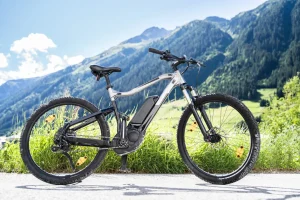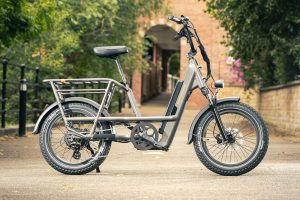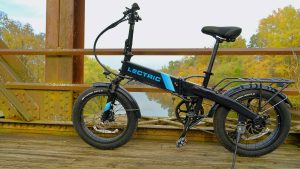In the hustle and bustle of urban life, a new player has entered the scene, revolutionizing the way we think about transportation – the electric cargo bike. Defined by its ability to carry substantial loads while being powered by an electric motor, these bikes are gaining popularity as an eco-friendly and efficient mode of transportation.

II. Advantages of Electric Cargo Bikes
Electric cargo bikes come with a plethora of advantages, making them an attractive choice for individuals and businesses alike. From their positive environmental impact to cost-efficiency and enhanced accessibility, these bikes are changing the game in urban mobility.
III. Types of Electric Cargo Bikes
When diving into the world of electric cargo bikes, one encounters various types, each designed for specific purposes. Whether it’s the longtail vs. front-loading design or the choice between three-wheelers and two-wheelers, understanding these distinctions is crucial for making an informed decision.
IV. Key Features to Look For
For those considering an electric cargo bike, understanding key features such as battery capacity, cargo space, and motor power is essential. These factors not only impact the bike’s performance but also determine its suitability for specific tasks.
V. Electric Cargo Bikes in Business
The business sector is embracing electric cargo bikes for last-mile delivery services and commercial use in urban settings. The impact on logistics and supply chains is undeniable, showcasing the potential of these bikes to reshape the way goods are transported in cities.
VI. Challenges and Solutions
While electric cargo bikes present numerous benefits, challenges such as infrastructure limitations and battery range concerns must be addressed. Innovative solutions and a focus on safety considerations are vital for the continued success of these bikes in urban environments.
VII. Consumer Stories
Real-life experiences with electric cargo bikes provide valuable insights into their practicality and benefits. Testimonials from users highlight the positive impact these bikes have on daily life, offering a human perspective on their usability and advantages.
VIII. Maintenance and Care Tips
Ensuring the longevity of electric cargo bikes requires proper maintenance and care. From regular battery maintenance to tire care and thorough inspections, adopting good practices is key to keeping these bikes in optimal condition.

IX. Future Trends in Electric Cargo Bikes
As technology advances, electric cargo bikes are expected to undergo significant transformations. Integration with smart cities, innovations in design, and a focus on sustainability are among the future trends that promise to further enhance their appeal.
X. Comparisons with Traditional Cargo Vehicles
Comparing electric cargo bikes with traditional cargo vehicles reveals cost advantages, reduced environmental impact, and increased practicality and efficiency. The shift towards these bikes signals a potential revolution in the way goods are transported.
XI. Choosing the Right Electric Cargo Bike
Selecting the right electric cargo bike involves assessing individual needs, researching brands and models, and considering long-term costs. With a diverse market offering various options, finding the perfect fit requires careful consideration.
XII. DIY Electric Cargo Bikes
For the adventurous and creative individuals, building a DIY electric cargo bike offers customization options and a sense of accomplishment. Community initiatives and resources provide support for those interested in taking on the challenge of constructing their own cargo bike.
XIII. Regulations and Legal Considerations
Navigating traffic regulations, licensing, and insurance requirements is crucial for electric cargo bike users. Advocacy for policy changes can contribute to creating a more bike-friendly environment, encouraging the wider adoption of these sustainable vehicles.
XIV. Social Impact of Electric Cargo Bikes
Beyond practical considerations, electric cargo bikes have a social impact by promoting community engagement, empowering small businesses, and encouraging sustainable practices. Their role extends beyond transportation, contributing to a more connected and environmentally conscious society.
XV. Conclusion
In conclusion, electric cargo bikes offer a compelling solution to the challenges of urban transportation. With their numerous advantages, diverse applications, and potential for positive social impact, these bikes are paving the way for a sustainable and efficient future in urban mobility.
FAQs (Frequently Asked Questions)
- Are electric cargo bikes suitable for hilly terrains?
- Yes, many electric cargo bikes come equipped with powerful motors that handle hilly terrains effectively.
- What is the average lifespan of an electric cargo bike battery?
- The lifespan varies but is typically around 3 to 5 years, depending on usage and maintenance.
- Can electric cargo bikes be used for family outings?
- Absolutely! Some electric cargo bikes are designed with family-friendly features, making them perfect for outings.
- Do electric cargo bikes require a special license to operate?
- In most places, no special license is required, but it’s essential to be aware of local traffic regulations.
- How do electric cargo bikes contribute to sustainability?
- By replacing traditional vehicles, electric cargo bikes reduce emissions, congestion, and contribute to a greener environment.













